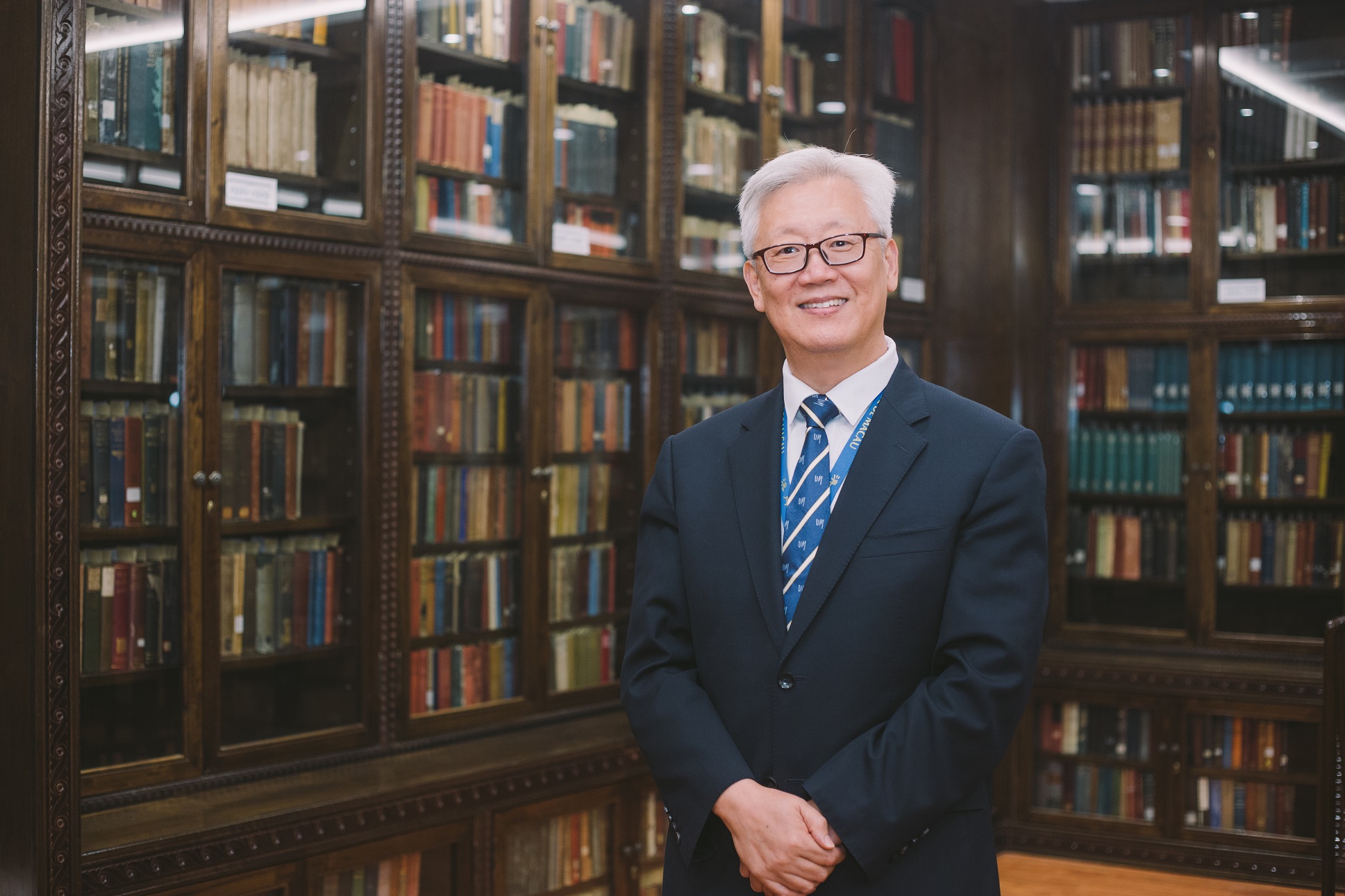TEXT: Yvonne Yu
PHOTOGRAPHER: Panda Lei
Macao Library Week 2018 was kicked off by an inspiring speech by Dr Wu Jianzhong, University Librarian of the University of Macau Library at the lecture entitled ‘Public Libraries @ Smart City’. An emerging trend in 21st century urban planning, smart cities can help people achieve a better life with more precision. As Dr Wu explained, ‘Knowledge is the driving force for the development of a city. One’s wealth depends on his or her ability to acquire resources, and the best way to acquire such resources as information and knowledge is through libraries – libraries can help improve reading literacy and information skills necessary for work and daily life.’

Dr Wu recalled the impression he got from the public libraries of Macao when he started working as the librarian of the University of Macau Library at the beginning of the year. He found them ‘very good and lively’ with many intriguing details. ‘They are very inviting, and there are so many promotional activities targeting the general public. While traditional libraries mostly provide books for borrowing, libraries nowadays focus more on information exchange and sharing, which embodies exactly the ‘smart’ concept proposed for smart cities. I hope the public libraries of Macao and the University Library would join hands to create new space and launch new services for knowledge interaction.’

An excellent example of public library for smart cities is the Helsinki Central Library in Finland, which is set to open towards the end of 2018. Boasting a cutting-edge design, the library offers an unprecedented feature – a sauna – for readers to experience this unique aspect of Finnish culture and a co-working space which is currently a prevailing trend around the world. On the way to transforming Macao into a smart city, what should the libraries focus on? ‘First of all, learn about and explore the function of library as a place, so that knowledge can multiply in value while being exchanged. For libraries, it has become especially important to organize and host constructive reading activities.’ To put words into actions, the University of Macau Library will host a series of cultural events such as ‘Lectures on Liberal Arts Education’ (Boya Lecture), ‘Liberal Arts Exhibitions’ and ‘Liberal Arts Book Launch’ in September this year and is also going to launch a mobile app for the public to search for data and information. ‘Secondly,’ Dr Wu continued, ‘making good use of modern technology to enhance the precision in information provision and retrieval, which is to say, library management systems should be upgraded at the same time to facilitate the transition from being book-based to knowledge-based and cloud computing should be utilized to enable readers to access and share information anytime, anywhere.’ Thirdly, technological talent, upgrade is not only required for hardware, but also for manpower. In the past, library staff only needed to know how to catalogue books, however in the libraries of smart cities, they are required to possess disciplinary knowledge and technological literacy in order to manage books and data concurrently, along with public relations and organizational skills. The ability to host a function, for instance, will become one of the requisites for future library staff - emcees of the Lectures on Liberal Arts Education are all staff members that the university itself has fostered.


